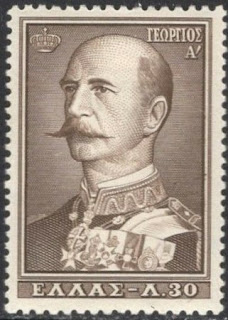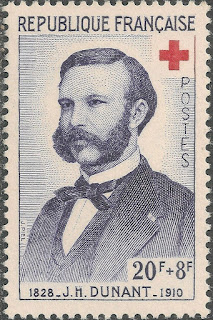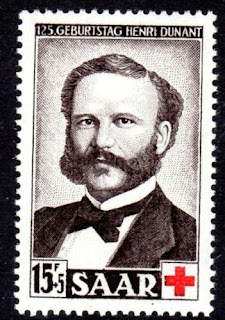Here are some events that happened on October 30th. It could be an event or a person that died or was born on that day
1735 Born: John Adams, American lawyer and politician, 2nd President of the United States (d. 1826)
John Adams (October 30, 1735 – July 4, 1826) was an American statesman, attorney, diplomat, writer, and Founding Father who served as the second president of the United States from 1797 to 1801. Before his presidency he was a leader of the American Revolution that achieved independence from Great Britain, and also served as the first vice president of the United States. Adams was a dedicated diarist and regularly corresponded with many important figures in early American history including his wife and adviser, Abigail, and his letters and other papers are an important source of historical information about the era.
United States stamps depicting John Adams
1861 Born: Antoine Bourdelle, French sculptor and painter (d. 1929)
Antoine Bourdelle (30 October 1861 – 1 October 1929), born Émile Antoine Bordelles, was an influential and prolific French sculptor and teacher. He was a student of Auguste Rodin, a teacher of Giacometti and Henri Matisse, and an important figure in the Art Deco movement and the transition from the Beaux-Arts style to modern sculpture.
His studio became the Musée Bourdelle, an art museum dedicated to his work, located at 18, rue Antoine Bourdelle, in the 15th arrondissement of Paris, France.
French stamp and first day cover depicting Antoine Bourdelle or his works
1863 – Danish Prince Vilhelm arrives in Athens to assume his throne as George I, King of the Hellenes.
George I (24 December 1845 – 18 March 1913) was King of Greece from 30 March 1863 until his assassination in 1913.
Originally a Danish prince, he was born in Copenhagen, and seemed destined for a career in the Royal Danish Navy. He was only 17 years old when he was elected king by the Greek National Assembly, which had deposed the unpopular Otto. His nomination was both suggested and supported by the Great Powers: the United Kingdom of Great Britain and Ireland, the Second French Empire and the Russian Empire. He married Grand Duchess Olga Constantinovna of Russia in 1867, and became the first monarch of a new Greek dynasty. Two of his sisters, Alexandra and Dagmar, married into the British and Russian royal families. Edward VII of the United Kingdom and Alexander III of Russia were his brothers-in-law, and George V, Nicholas II, Christian X of Denmark and Haakon VII of Norway were his nephews.
George's reign of almost 50 years (the longest in modern Greek history) was characterized by territorial gains as Greece established its place in pre-World War I Europe. Britain ceded the Ionian Islands peacefully in 1864, while Thessaly was annexed from the Ottoman Empire after the Russo-Turkish War (1877–1878). Greece was not always successful in its territorial ambitions; it was defeated in the Greco-Turkish War (1897). During the First Balkan War, after Greek troops had captured much of Greek Macedonia, George was assassinated in Thessaloniki. Compared with his own long tenure, the reigns of his successors Constantine I, Alexander, and George II proved short and insecure.
Greece stamp depicting George I
1910 Died: Henry Dunant, Swiss activist, founded the Red Cross, Nobel Prize laureate (b. 1828)
Henry Dunant (born Jean-Henri Dunant; 8 May 1828 – 30 October 1910), also known as Henri Dunant, was a Swiss humanitarian, businessman and social activist. He was the visionary, promoter and co-founder of the Red Cross.
During a business trip in 1859, Dunant was witness to the aftermath of the Battle of Solferino in modern-day Italy. He recorded his memories and experiences in the book A Memory of Solferino which inspired the creation of the International Committee of the Red Cross (ICRC) in 1863. The 1864 Geneva Convention was based on Dunant's idea for an independent organisation to care for wounded soldiers.
Dunant was the founder of the Swiss branch of the Young Men's Christian Association YMCA.
In 1901 he received the first Nobel Peace Prize together with Frédéric Passy, making Dunant the first Swiss Nobel laureate.
Stamps from various countries issued to commemorate Dunant and the Red Cross










No comments:
Post a Comment